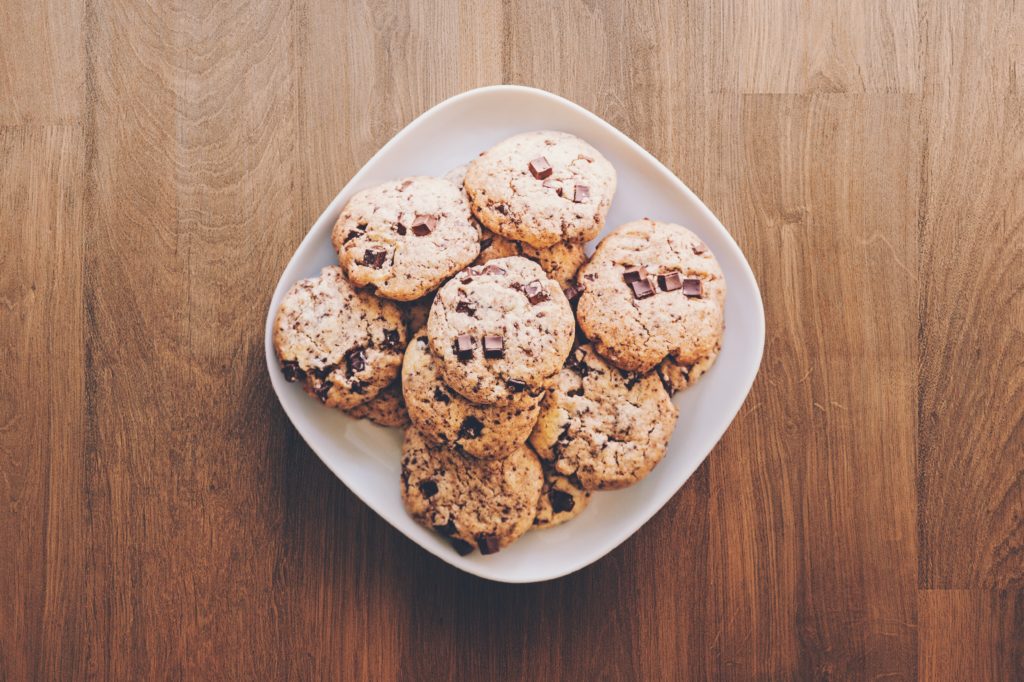With PTSD, anxiety, and depression on the rise because of the pandemic, the World Health Organisation has estimated that by the end of 2020, mental disease will be the second leading cause of disability.
For many, these problems began or worsened during lockdown, but post-lockdown life brings its own set of challenges such as anxieties about returning to the workplace and the stress of social distancing.
I will be the first to admit that when I feel overwhelmed, I struggle against the urge to reach for comfort foods to deal with my stress. However, these foods are rarely ever beneficial for our brains and bodies and can have poor effects on our stress levels alongside our mood and mental health. High-sugar diets have been linked to increased risk of anxiety and depression despite what our chocolate cravings are telling us! Of course, there are other ways of managing your stress and talking to a professional can also help.

I often say that managing and reducing your stress levels is about changing what is in your power to change. There’s nothing you can do about the pandemic or the government guidelines, but what you can do it manage your response to it. Lifestyle factors such as diet, exercise and sleep have a huge impact on mental health and wellbeing and making slight tweaks to your daily routine can put you in a much better place to deal with your challenges.
Routine
I talk about this a lot because although many people believe they would love to live a life free from responsibilities, human beings crave structure.
- Get up at the same each day and go to bed at the same time each night to create a pattern for your body to accept. If you do feel tired in the afternoon, a 20-minute catnap can help counter this, but any longer can reverse the intended effects.
- Make sure you go outside every day. This helps balance melatonin and cortisol levels and can help in improving your mood and energy levels throughout the day. Exposure to natural daylight has also been linked to a reduction in stress levels, depression, and mood swings, especially in the middle part of the day.
- Eat your meals at structured times each day the way you did as a child. Creating a routine can support your adrenal glands and eating inconsistently or skipping entire meals can result in feelings of stress, anxiousness, and irritability.
- Get your dinner in early. You don’t have to go by the ‘no food after 6pm’ policy, however eating too close to bedtime provides energy that your body doesn’t have time to expend. The later you eat, the less your body is prepared for sleep.
Food to Enjoy

- Our brains enjoy foods high in healthy fats, full of omegas and low in saturated fats. Oily fish such as salmon is a great option (which also packs in plenty of B12 and iron to reduce feelings of fatigue). Other sources include nuts, seeds, avocado and olive oil.
- Green leafy vegetables such as kale, rocket and spinach are incredibly important as they’re high in vitamins and minerals and linked to lower risk of obesity and heart disease, reduced blood pressure and as they’re low in calories, they’re the perfect choice to bulk up any meal.
- Include a source of protein with every meal. Protein is packed full of amino acids which aid serotonin and melatonin. Your body also utilises protein to build and repair tissues, making it incredibly important for your muscles, bones, cartilage, skin, and blood. Think eggs, meat, fish, nuts, seeds, and dairy products.
- Prioritise probiotic fermented foods like Greek yoghurt, sauerkraut or kombucha to aid digestion and improve gut health. These foods help fight off bad bacteria and are even linked to improved mental health.
Food to Limit
– High-sugar foods are usually calorie-dense, increasing your chances of weight gain, obesity, type 2 diabetes, and heart disease if consumed over a prolonged period. That fleeting moment might serve your cravings initially, but will make you feel much worse minutes later, often leaving you feeling anxious and depressed.
– Caffeine is another thing that is best to keep minimal in your diet. Not only has it been linked to increased anxiety, but as with any stimulant, it raises your heart rate and blood pressure, impacting your general health.
– Although you might enjoy a drink at the weekend, it is wise to keep an eye on your alcohol consumption. Alcohol offers no nutritional value, meaning you are consuming empty calories without any additional benefit to your body or brain. Long-term consequences involve cancer, heart disease, strokes, and anemia to name a few, but it also impacts our mental health, memory, and fertility levels.
The Way Forward
We can all experience anxiety and depression and don’t think you are the only person to do.
There is plenty that you can do to help yourself but just give me a call if you would like to have a chat. It is good to talk.




